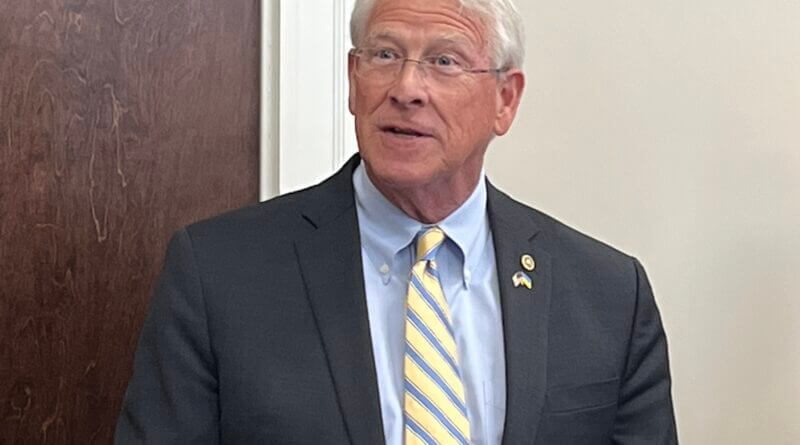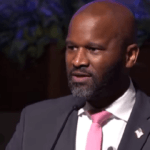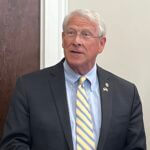Wicker: Backs open debate on COVID origin
Note: The following is Sen. Roger Wicker’s Weekly Report and is provided by the Senator’s office.
Dissenting Views, Once Ridiculed, are Now Mainstream
This month, in a moment of bipartisanship, both the Senate and the House unanimously passed a bill to require the Biden administration to declassify key information about the origins of COVID-19. This legislation, the COVID-19 Origin Act of 2023, is long overdue. Full transparency is exactly what the country needs as we turn the page on the pandemic.
Overdue Legislation an Antidote for Groupthink
What makes this bipartisan moment so remarkable is the left’s about-face. For the past three years, thoughtful Americans who wanted more exploration of COVID-19’s origins in China were dismissed out of hand. Beginning in 2020, a number of scientists and health care professionals began good faith discussions about the virus’s origins, challenging the establishment version that the virus originated in nature. There were legitimate concerns about misinformation. But far too often, medical experts, including Dr. Anthony Fauci, shut down reasonable questions by marking them with a bright red “conspiracy theory” stamp.
The COVID-19 Origin Act would help correct that groupthink. In 2021, as more evidence came to light indicating the virus leaked from a lab in Wuhan, China, I noted how this vindicated those thoughtful Americans. Now, two U.S. intelligence agencies have endorsed the theory, and the left has been caught flat-footed as their dismissals now look premature.
This legislation is a model for future government responses to public health emergencies. Going forward, we must not silence dissent. Instead, we must publicize the evidence so experts and other Americans can make the most informed decisions. The scientific method relies on open mindedness, and so should we.
Protecting American Sovereignty Against the WHO
The United States is not alone in charting its post-COVID-19 future. Last month, the World Health Organization (WHO) published the first draft of a “pandemic treaty,” a proposed international agreement about how member countries should respond to health crises.
I have grave doubts about an international body like the WHO imposing commitments on our country. The United States must not surrender our sovereignty over health-care choices. For that reason, I cosponsored legislation with Senators Risch and Johnson that would require the Senate to approve any international agreements that legally obligate our nation, and I will continue fighting any efforts that threaten our ability to make decisions for ourselves.
Putting Federal Employees Back to Work
In addition, it is time for all federal employees to return to the workplace. One of COVID-19’s lingering effects has been the service delays American citizens face when dealing with federal agencies. The public should get prompt responses from their government, but today many have difficulty receiving timely help. During the pandemic, federal agencies implemented various remote work structures. With many still working from home, concerns regarding government responsiveness have only grown. For example, passport wait times remain well above 2019 levels. By the end of last year, the IRS inventory of suspended tax returns grew to nearly 6 million, backlogging identity theft case resolution. Social Security claim processing times have ballooned to an average of 191 days, more than double the 2019 average.
To combat this, I reintroduced the RETURN Act, which requires federal agencies to publish their return-to-work plans. The remote work policies of three years ago are no longer acceptable, and it is past time for all public servants to get back to work.
The pandemic is over. As Congress and the Biden Administration consider legislation that will shape our understanding of COVID-19 and our response to future public health challenges, I remain committed to the principles that will make us resilient in the face of crisis: transparency, independence, and prompt constituent services.





